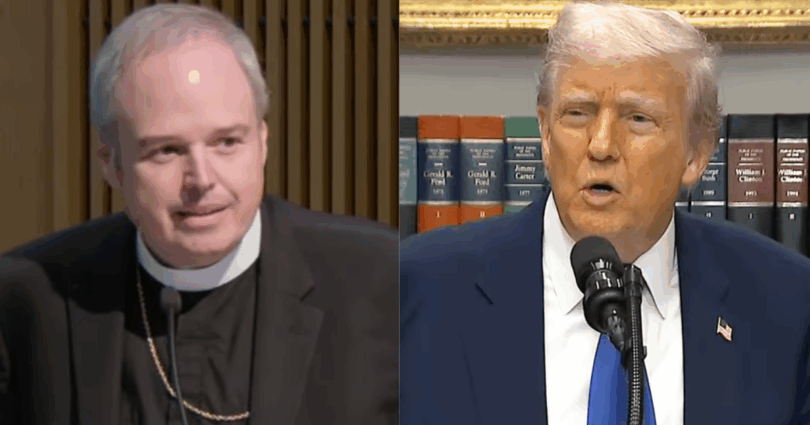Episcopal Church Rejects Trump’s South African White Farmer Resettlement Policy, Ends Role in Refugee Resettlement
In a stunning rupture with the federal government, the Episcopal Church has ended its decades-long refugee partnership after the Trump administration welcomed a group of white South African immigrants into the U.S. under an expedited resettlement order.
The controversy centers on 49 Afrikaners — members of South Africa’s white minority — who arrived this week in Virginia.
Their arrival marks the beginning of a larger plan to relocate more individuals whom the White House says are fleeing race-based persecution.
The decision prompted swift backlash, not just from the South African government, but also from religious and humanitarian groups who accused the administration of favoring white applicants over others fleeing equally dangerous conditions.
Presiding Bishop Sean Rowe said the church could not continue participating in what it saw as an imbalanced system.
“Preferential treatment” for any single group, he stated, ran counter to the Church’s principles of racial equity and solidarity with its Anglican counterpart in Southern Africa.
“This is persecution based on a protected characteristic – in this case, race. This is race-based persecution,” said Stephen Miller, Trump’s deputy chief of staff, according to the Daily Mail.
He defended the refugee move as consistent with U.S. law and claimed the treatment of Afrikaners in South Africa warranted urgent action.
Trump himself stood firm when pressed about the program.
“It’s a genocide that’s taking place, and you people don’t want to write about it,” he said.
“It’s a terrible thing that’s taking place, and the farmers are being killed; they happen to be white. Whether they are white or black makes no difference to me, but white farmers are being brutally killed, and their land is being confiscated in South Africa.”
The White House’s position, however, has been met with fierce resistance. South African officials have pushed back on allegations of persecution, saying the claim of race-targeted violence lacks evidence.
“There is no data at all that backs that there is persecution of white South Africans,” said Foreign Minister Ronald Lamola. “They do not qualify for that status, according to us.”
Humanitarian groups also weighed in. World Relief called for a more inclusive refugee policy that addresses all persecuted groups equally.
Church World Service said it was open to helping South African migrants but opposed the fast-tracking of one group over others “while life-saving resettlement to other refugee populations is rejected.”
Tensions between Washington and Cape Town have escalated in recent months, according to the Daily Mail.
In March, South Africa’s U.S. ambassador, Ebrahim Rasool, was expelled following remarks accusing Trump of stoking “white victimhood.” The administration fired back, accusing Rasool of “race-baiting.”
The diplomatic fallout has coincided with Trump’s sweeping foreign aid cuts, including a full suspension of U.S. assistance to South Africa.
Elon Musk, who was born in South Africa, has echoed the administration’s view, claiming white South Africans face a “genocide” and slamming land ownership laws as “racist.”
Before boarding the plane, the 49 refugees underwent criminal background checks, according to South Africa’s transport ministry, which required police vetting before departure.
According to international economic reports, South Africa’s land and wealth gaps remain stark.
Though whites make up a small fraction of the population, they control the vast majority of private land and hold disproportionate wealth — a legacy of apartheid that continues to shape the country’s politics.
Despite these disparities, South Africa’s Foreign Ministry issued a sharp rebuke of the U.S. resettlement decision, labeling it “an attempt to undermine our constitutional democracy.”


Leave a Comment